第60章
But notwithstanding that this distinction be thus universally received, both in the active and speculative scenes of life, I shall not scruple to pronounce, that it is, at bottom, erroneous, at least, superficial.
If we examine those arguments, which, in any of the sciences above mentioned, are supposed to be mere effects of reasoning and reflection, they will be found to terminate, at last, in some general principle or, conclusion, for which we can assign no reason but observation and experience. The only difference between them and those maxims, which are vulgarly esteemed the result of pure experience, is, that the former cannot be established without some process of thought, and some reflection on what we have observed, in order to distinguish its circumstances, and trace its consequences: Whereas in the latter, the experienced event is exactly and fully familiar to that which we infer as the result of any particular situation. The history of a T/IBERIUS or a N/ERO makes us dread a like tyranny, were our monarchs freed from the restraints of laws and senates:
But the observation of any fraud or cruelty in private life is sufficient, with the aid of a little thought, to give us the same apprehension; while it serves as an instance of the general corruption of human nature, and shows us the danger which we must incur by reposing an entire confidence in mankind. In both cases, it is experience which is ultimately the foundation of our inference and conclusion.
There is no man so young and inexperienced, as not to have formed, from observation, many general and just maxims concerning human affairs and the conduct of life; but it must be confessed, that, when a man comes to put these in practice, he will be extremely liable to error, till time and farther experience both enlarge these maxims, and teach him their proper use and application. In every situation or incident, there are many particular and seemingly minute circumstances, which the man of greatest talent is, at first, apt to overlook, though on them the justness of his conclusions, and consequently the prudence of his conduct, entirely depend. Not to mention, that, to a young beginner, the general observations and maxims occur not always on the proper occasions, nor can be immediately applied with due calmness and distinction. The truth is, an unexperienced reasoner could be no reasoner at all, were he absolutely unexperienced; and when we assign that character to any one, we mean it only in a comparative sense, and suppose him possessed of experience, in a smaller and more imperfect degree.
[13]'Naturane nobis, inquit, datum dicam, an errore quodam, ut, cum ea loca videamus, in quibus memoria dignos viros acceperimus multim esse versatos, magis moveamur, quam siquando eorum ipsorum aut facta audiamus aut scriptum aliquod legamus? Velut ego nunc moveor. Venit enim mihi Plato in mentem, quem accepimus primum hic disputare solitum; cuius etiam illi hortuli propinqui non memoriam solum mihi afferunt, sed ipsum videntur in conspectu meo hic ponere. Hic Speusippus, hic Xenocrates, hic eius auditor Polemo; cuius ipsa illa sessio fuit, quam videmus. Equidem etiam curiam nostram, Hostiliam dico, non hanc novam, quae mihi minor esse videtur postquam est maior, solebam intuens, Scipionem, Catonem, Laelium, nostrum vero in primis avum cogitare. Tanta vis admonitionis est in locis; ut non sine causa ex his memopriae deducta sit disciplina.' -- Cicero de Finibus. Lib. v.
[14]Mr. L/OCKE divides all arguments into demonstrative and probable. In this view, we must say, that it is only probable that all men must die, or that the sun will rise to-morrow. But to conform our language more to common use, we ought to divide arguments into , , and . By proofs meaning such arguments from experience as leave no room for doubt or opposition.
[15]Section II.
[16]Mr. L/OCKE, in his chapter of power, says that, finding from experience, that there are several new productions in matter, and concluding that there must somewhere be a power capable of producing them, we arrive at last by this reasoning at the idea of power. But no reasoning can ever give us a new, original, simple idea; as this philosopher himself confesses. This, therefore, can never be the origin of that idea.
[17]IT may be pretended, that the resistance which we meet with in bodies, obliging us frequently to exert our force, and call up all our power, this gives us the idea of force and power. It is this , or strong endeavour, of which we are conscious, that is the original impression from which this idea is copied. But, first, we attribute power to a vast number of objects, where we never can suppose this resistance or exertion of force to take place; to the Supreme Being, who never meets with any resistance; to the mind in its command over its ideas and limbs, in common thinking and motion, where the effect follows immediately upon the will, without any exertion or summoning up of force; to inanimate matter, which is not capable of this sentiment. , This sentiment of an endeavour to overcome resistance has no known connexion with any event:
What follows it, we know by experience; but could not know it
. It must, however, be confessed, that the animal , which we experience, though it can afford no accurate precise idea of power, enters very much into that vulgar, inaccurate idea, which is formed by it.
[18][Three Greek words]
[19]Section XII.
[20]I N/EED not examine at length the